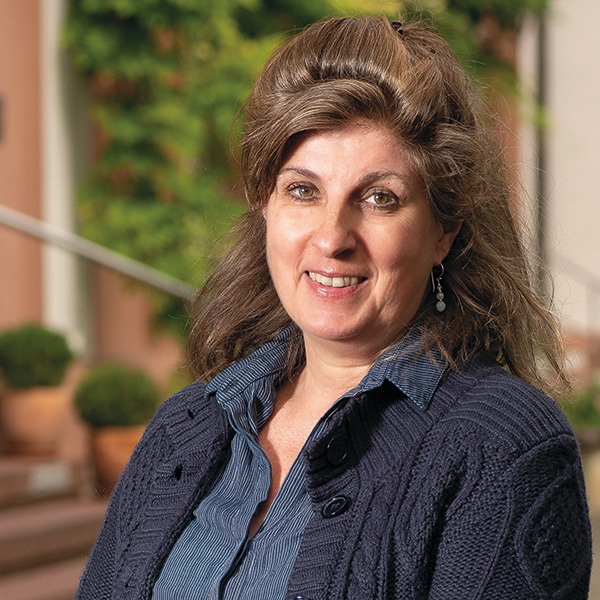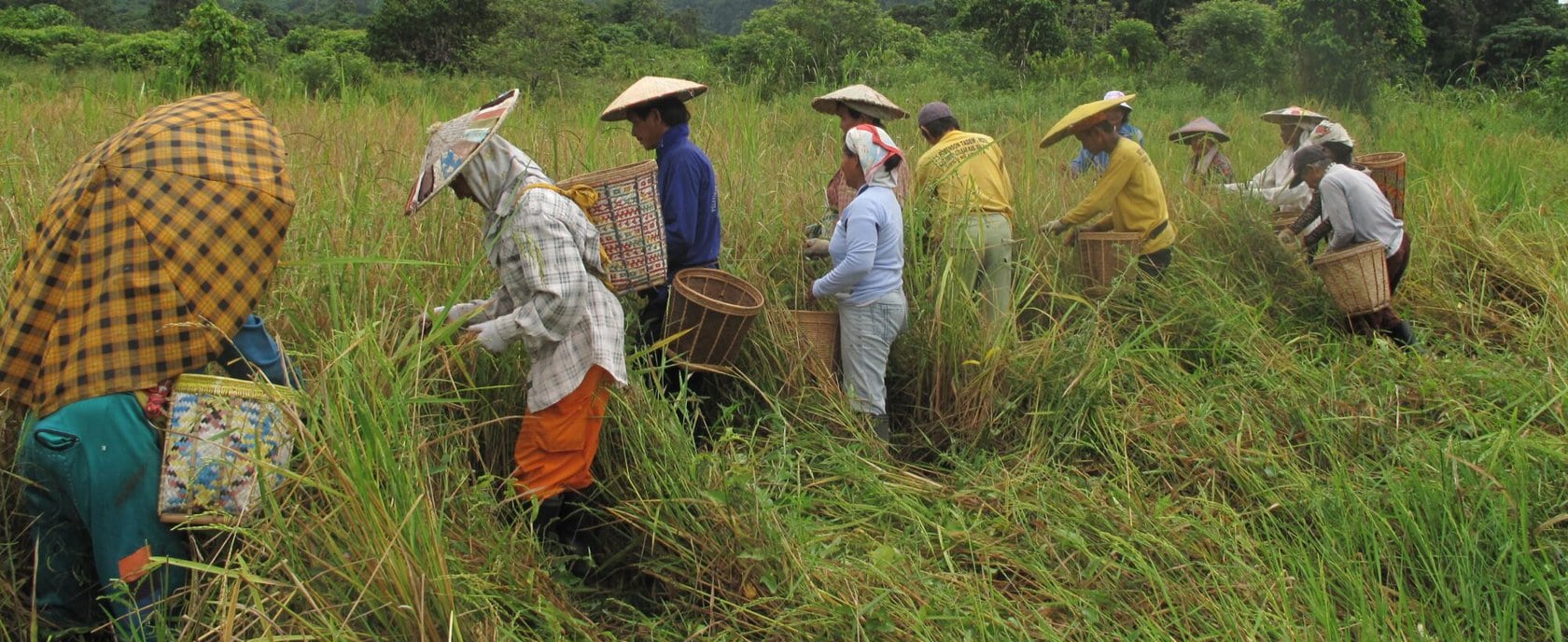
Jacqueline Brunner
Team leader church partnerships
Tel. 061 260 23 37
► E-mail

Project Number: 200.1010
In Asia, pastors are important actors on the path to more peace and justice. They are trusted figures who often enjoy more recognition in the communities than representatives of the state. The quality of their education and training is therefore the focus of this project. Teaching and practice at church educational institutions should prepare the prospective pastors to deal with the challenges of their grassroots communities - such as land grabbing, discrimination against minorities and restrictions on the free practice of religion.
Although the state guarantees religious freedom, ethnic and religious minorities in Indonesia repeatedly experience restrictions, which leads to conflicts in everyday life. In Malaysia, Islam enjoys political priority as the state religion, although the society is religiously and ethnically heterogeneous. In the state of Sabah, 69.6% of the population are Muslim and 24.7% are Christian. In the project area in Sabah, the indigenous Christian minority feels disadvantaged. Political opportunism and a lack of rule of law prevent disadvantaged people in both countries from gaining their rights. In Hong Kong, the People's Republic of China has massively restricted democratic rights such as freedom of assembly, freedom of expression and freedom of choice in recent years. Countless democracy activists and critical journalists have been physically threatened and imprisoned. State control over all areas of life, including church work, is steadily increasing and has led to an atmosphere of fear and self-censorship.
The main churches and church-related associations in Indonesia propagate a contextual theology (or transformational or liberation theology): They emphasize the challenges of the here and now as opposed to promises of the hereafter, which ignores current burning issues in society. All of Mission 21's partner organizations are involved in transformative processes that raise awareness of current social realities, develop new contextual theological perspectives, and call for action in their communities. Many of today's so-called "agents of change," including many women, are former beneficiaries of Mission 21's program work and have since assumed leadership positions in churches and church-related associations. Theologically trained women are in a position to develop new perspectives for gender-responsive church policies and new theological curricula that address burning but long overlooked problems in society. Contextual theology provides the basis for interfaith dialogue and concrete, practical collaboration across religious boundaries to address challenges together.
Statements from participants confirm that a sustainable discussion within church and society - stimulated by seminars and lectures on specific burning issues such as climate change, societal violence and trauma, gender roles and power relations, tradition and LGBQTI+, ecclesiology, or interreligious relations and freedom of expression - still requires further efforts that encompass the levels of discourse, teaching and practice. These issues continue to be contentious in society and therefore potentially conflictual. Theological education, in the sense of educating future social leaders, can play an important role in this regard.
Grassroots communities and groups in civil society are strengthened to be able to shape their lives in a self-determined and independent way and to actively contribute to social processes. The church and other civil society contact persons have a key function in this: By teaching a contextual theology that reflects current social and ecological challenges and relates them to practice, the students and future pastors are enabled to more effectively enter pressing social problems.
Support research on contextual theological issues and evidence of program outcomes.
The primary target groups of this project are the students as well as the leaders and teachers of theological training institutes. As prospective pastors or other active people, the students will later become important "agents of change" and leaders in the church and society who work for peace, social justice and the integrity of creation in their environment. The attitude they learn during their studies has a decisive influence on the impact of church and social development programs. In this way, the training centers, the theological associations and the publishing house make a concrete contribution to a peaceful society based on solidarity. Indirect participants are church congregations, academic communities and political decision-makers in churches, science and society.
Direct project participants: 2,429
Indirect project participants: 8,281
The important associations PERSETIA and PERUATI and the publishing house Gunung Mulia propagate with their events and publications the contextualization of theology, which has now become "mainstream" in academic discourse in Indonesia. Mission 21 and its partners have contributed to this success, as well as to the targeted promotion of women and feminist theology. At the CPCE theological college in South Kalimantan, for example, contextualization has entered teaching and research, not as a subject but as a working principle. The younger pastors trained in this way, with the support of their churches, are also increasingly involved in burning social problems in their congregations and work together interreligiously in their congregations with members of other religious communities. Some of these "agents of change" have now also risen to leadership positions in their churches or church-related institutes and associations.
At the Luther Seminar of the partner church PCS in Sabah, a valuable contribution was achieved through the South-South exchange of the theologian Elizabeth Mesdila from Indonesia. The deepening of cross-regional program work in the area of contextual theology should also help to raise awareness of the different and disadvantaged situation of Christians in Malaysia compared to those in Indonesia. The STS in Malaysia has steadily expanded and professionalized its training program - accompanied by social initiatives such as children's and residential homes, income support for women, addiction prevention and interreligious dialogue. The focus of project cooperation is on further training for students and teachers from marginalized social groups, such as ethnic minorities. The continuous deepening of Dr. Daniel Gloor's knowledge in the field of Arabic and Islam made it possible for him, in the difficult environment in Malaysia for Christians, to expertly deepen the treatment of Islam in his teaching. Being able to openly discuss fundamental issues is essential for students in the Islamic context of Malaysia. The Corona pandemic has been particularly challenging for Malaysian partner institutions in maintaining teaching opportunities for students from remote regions.
In Hong Kong, Divinity School students have been very active in the democracy movement in recent years. As repression against free and critical thinkers has increased significantly, a progressive educational institution like Divinity School is all the more important. The Divinity School is committed to free speech and expression and to standing up for justice.
Current podcast
The number of Christians in China is growing rapidly. The officially registered churches are flourishing, and there are also congregations that are beyond the control of the state. The state is trying to control the churches and at the same time is afraid that the loyalty of Christians will shift away from the party and towards religion. Brandner also explains how the Bible gains relevance when it speaks into a world characterized by repression, and he explains why Christianity is not a Western religion, but a global one.

CHF 404,000
Mission 21
Protestant Mission Basel
PO Box 270
Missionsstrasse 21
4009 Basel, Switzerland
Tel.: +41 (0)61 260 21 20
info@mission-21.org
Donation account Switzerland:
IBAN: CH58 0900 0000 4072 6233 2
Tax exemption number:
CHE-105.706.527
Donation account Germany:
Savings Bank Lörrach-Rheinfelden
Swift BIC: SKLODE66
BLZ: 683 500 48
IBAN: DE39 6835 0048 0001 0323 33
Account No. : 1032333